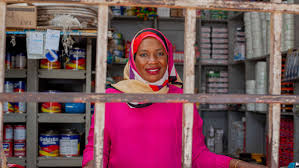Forex trading has exploded in popularity in Kenya, especially among the youth, who see it as a fast track to financial freedom.
But for many, the hype obscures the reality—higher returns come with higher risk, and success takes time, discipline, and learning. Wambui Ng’ang’a is one of those who beat the odds. She quit her stable job in the hospitality industry and has since built a successful career in Forex trading.
Early Steps: Seed Capital & Inspiration
Wambui first got interested in Forex after seeing her sister make profits in the trade. This piqued her curiosity and gave her confidence to try it herself.
She began with a seed capital of KSh 500,000.
The Learning Curve
Wambui emphasizes that Forex is not a get rich quick scheme. Successful trading, she says, hinges on investing in education.
It took her around three years to fully understand trading — to learn technical analysis, risk management, currency pair behavior, and how brokers work.
She warns that without proper mentorship or credible teachers, many traders end up dependent on brokers who may only teach the basics—or worse, mislead.
Challenges & Realities
One of her biggest challenges: dealing with misleading claims in the Forex space. Wambui advises caution toward flashy social media lifestyles that promise large gains.
She argues these often hide the volatility and risks.
Another reality: To make Forex trading a reliable source of income, one needs a large trading account over time, built with consistent profits and capital preservation.
Choosing licensed brokers is key. In Kenya, brokers are overseen by the Capital Markets Authority (CMA). A licensed broker offers investor protection, and gives legal recourse if something goes wrong.
Success & Mindset
Wambui says that successful trading depends not only on capital and skill but also on mindset: treating Forex like a business, being patient, disciplined, and financially prepared.
She also points out that profits depend heavily on how much one invests, the specialization (which currency pairs or strategies one focuses on), and how much risk one is willing and able to manage.
The depreciating Kenyan shilling against the US dollar has made Forex more appealing: it can amplify gains (but also risks).
What’s Missing (Potential Additions)
To make the story more robust and useful, the following could be added:
Specific strategy details — what kinds of currency pairs does Wambui trade? Does she use technical indicators, fundamental analysis, and automated tools?
Risk management practices — how does she limit her losses? What stop loss or position sizing strategies does she use?
Financial milestones — Approximate earnings, growth timeline, how her income compares to her old job.
Support systems — Mentors, peer groups, any formal training, courses, or communities that helped.
Challenges beyond the trading itself — e.g. psychological pressure, time management, tax or regulatory hurdles.
Advice for beginners — more concrete starting steps, pitfalls to avoid, cost of licenses or fees.
Wambui Ng’ang’a’s journey from a hospitality job to a successful Forex trader is a lesson in perseverance, learning, and strategic risk-taking.
Trading is neither easy nor guaranteed, but for those who invest in education, discipline, and legitimacy, it can be a pathway to financial freedom.
Her story serves as both inspiration and cautionary tale: success comes not from shortcuts or hype, but from time, knowledge, and integrity.



